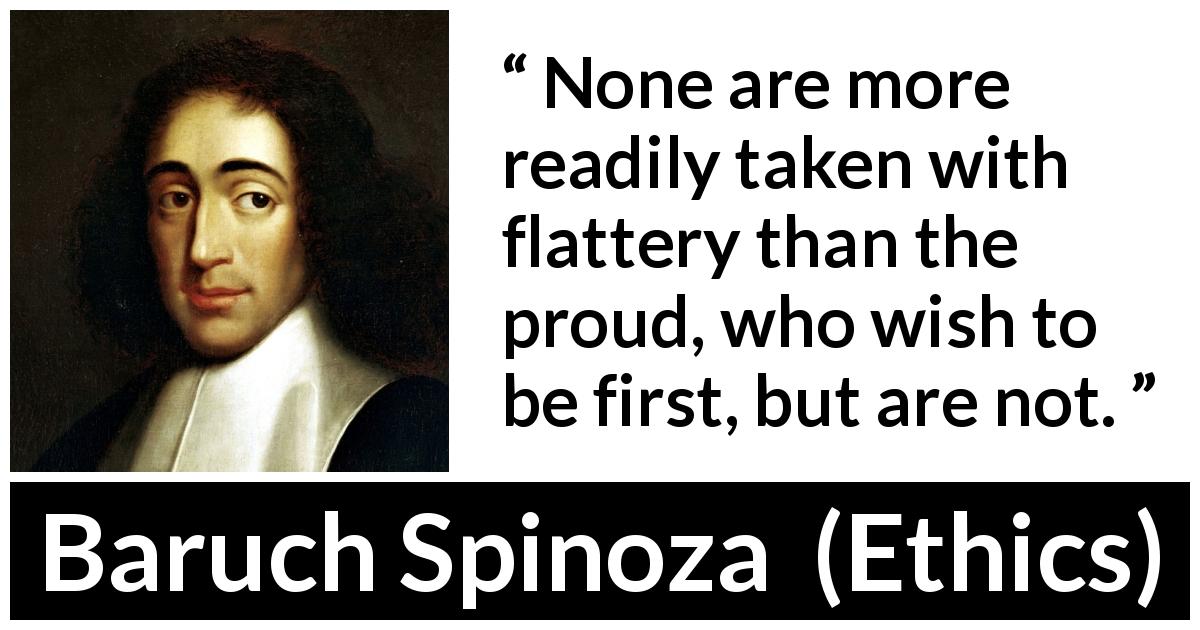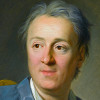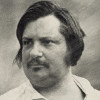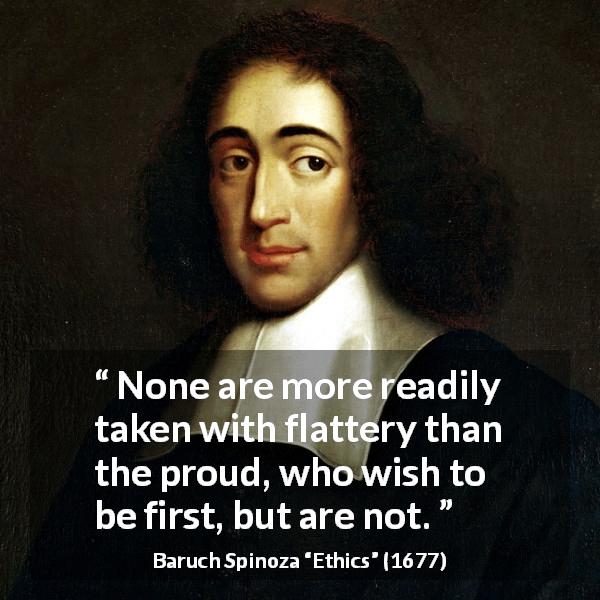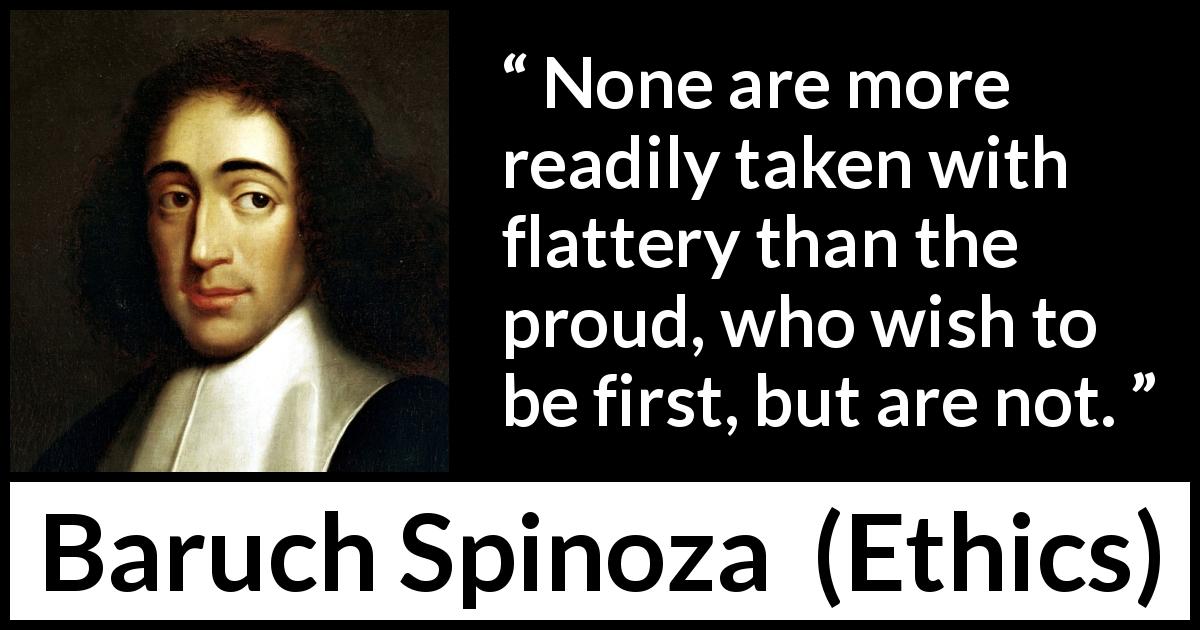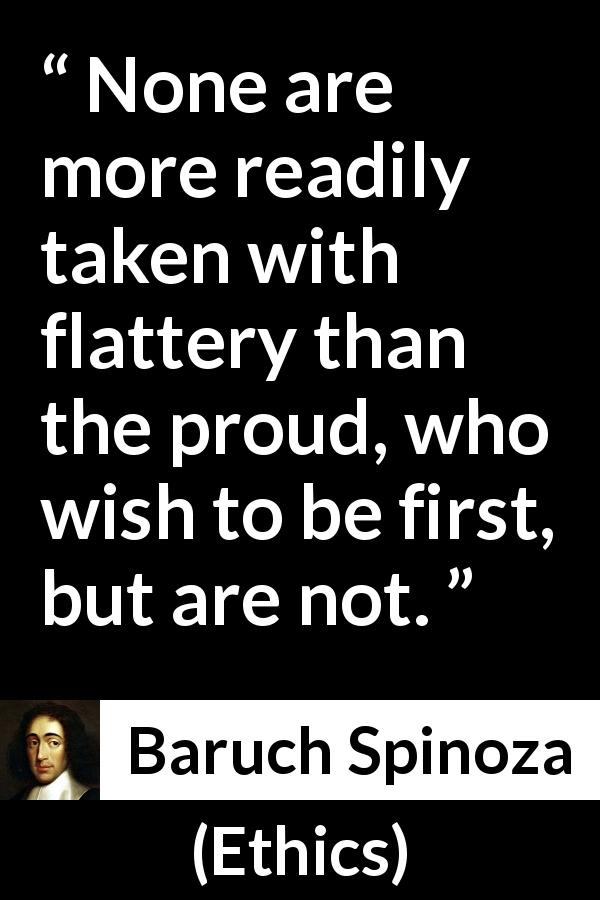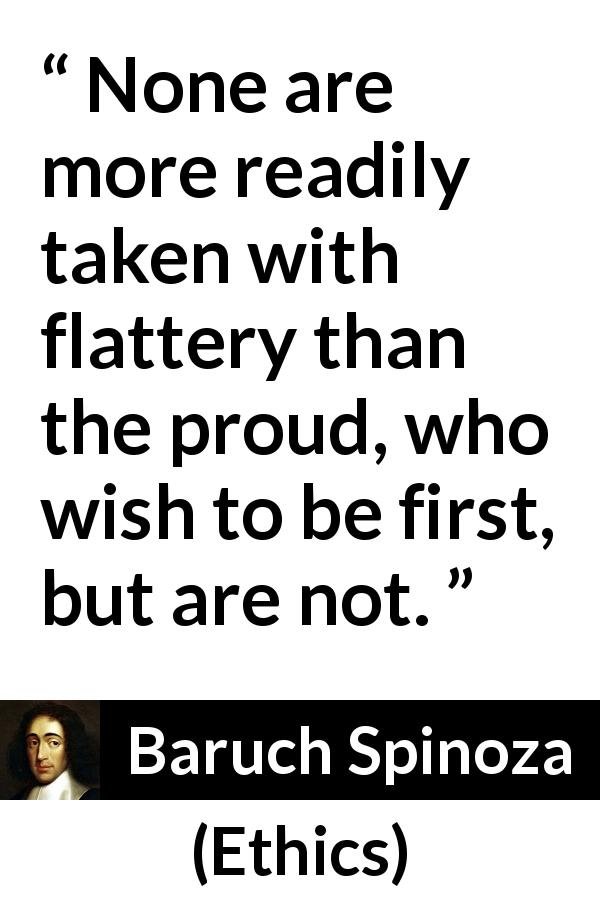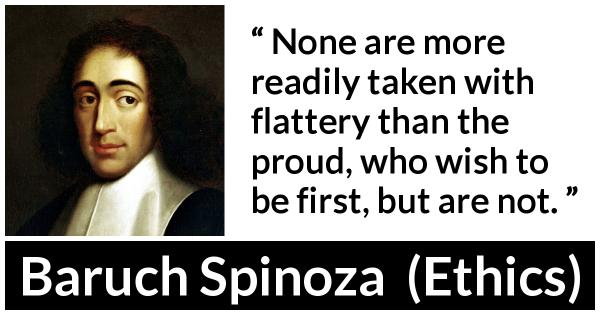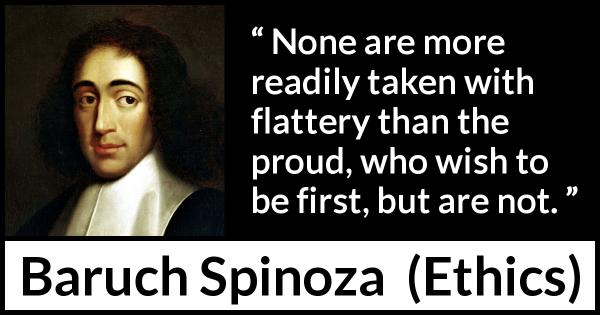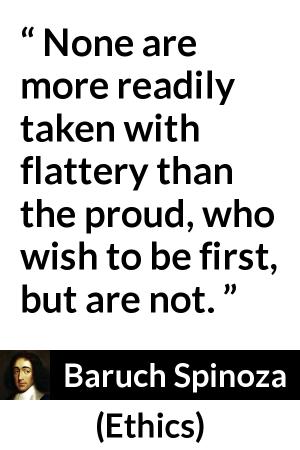“ None are more readily taken with flattery than the proud, who wish to be first, but are not. ”
Baruch Spinoza, Ethics (1677). copy citation
| Author | Baruch Spinoza |
|---|---|
| Source | Ethics |
| Topic | pride flattery |
| Date | 1677 |
| Language | English |
| Reference | |
| Note | Translated by R. H. M. Elwes |
| Weblink | http://www.gutenberg.org/files/3800/3800-h/3800-h.htm |
Context
“As concerning marriage, it is certain that this is in harmony with reason, if the desire for physical union be not engendered solely by bodily beauty, but also by the desire to beget children and to train them up wisely; and moreover, if the love of both, to wit, of the man and of the woman, is not caused by bodily beauty only, but also by freedom of soul.
XXI. Furthermore, flattery begets harmony; but only by means of the vile offence of slavishness or treachery. None are more readily taken with flattery than the proud, who wish to be first, but are not.
XXII. There is in abasement a spurious appearance of piety and religion. Although abasement is the opposite to pride, yet is he that abases himself most akin to the proud (IV. LVII. note).
XXIII.” source
XXI. Furthermore, flattery begets harmony; but only by means of the vile offence of slavishness or treachery. None are more readily taken with flattery than the proud, who wish to be first, but are not.
XXII. There is in abasement a spurious appearance of piety and religion. Although abasement is the opposite to pride, yet is he that abases himself most akin to the proud (IV. LVII. note).
XXIII.” source
